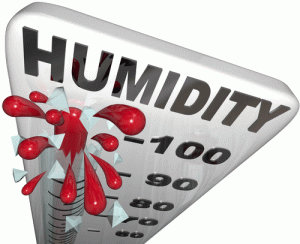 Indoor humidity is an element of your home’s air quality that can be confounding to deal with. Mitigating correlating indoor air quality problems, such as increased airborne allergens, may be as simple as using a higher-efficiency HVAC filter. Using portable dehumidifiers may seem like a logical way to mitigate a humidity problem, but they are ineffective as a whole-home solution.
Indoor humidity is an element of your home’s air quality that can be confounding to deal with. Mitigating correlating indoor air quality problems, such as increased airborne allergens, may be as simple as using a higher-efficiency HVAC filter. Using portable dehumidifiers may seem like a logical way to mitigate a humidity problem, but they are ineffective as a whole-home solution.
Donald P. Dick Air Conditioning Blog: Archive for the ‘Mold’ Category
Does Your Home Have a Humidity Problem?
Thursday, October 8th, 2015Mold and Mildew Growth: A Real Indoor Air Quality Issue for Homeowners
Thursday, January 23rd, 2014Maintaining good air quality in your home is crucial to protecting your family’s health. Among the common threats to the clean air in your home are mold and mildew. These organisms may be lurking in your home in places unseen, and endangering your family’s health, but you can take a few simple steps to protect yourself from this threat.
Mold and Mildew Do Damage and It’s All Because of High Humidity
Thursday, May 23rd, 2013 Mold and mildew thrive when the relative humidity remains high in your home for even a short period. Their growth rate is quite rapid; the fungi starts to form on damp surfaces in as little as 24 to 48 hours. Soon after, the fungi begins to produce spores that are released into the the air. The spores can cause moderate to severe health problems in individuals. Mold may also damage the wood, drywall and other surfaces of the home.
Mold and mildew thrive when the relative humidity remains high in your home for even a short period. Their growth rate is quite rapid; the fungi starts to form on damp surfaces in as little as 24 to 48 hours. Soon after, the fungi begins to produce spores that are released into the the air. The spores can cause moderate to severe health problems in individuals. Mold may also damage the wood, drywall and other surfaces of the home.
7 Facts About Mold That Every Homeowner Should Know
Thursday, May 31st, 2012 Toxic mold poses serious risks to both your health and the structural integrity of your home. As a homeowner, it’s important that you know the facts about mold so you can prevent it from developing, or deal with it safely and effectively if spores have already gained a foothold. With that in mind, here are seven key facts about mold:
Toxic mold poses serious risks to both your health and the structural integrity of your home. As a homeowner, it’s important that you know the facts about mold so you can prevent it from developing, or deal with it safely and effectively if spores have already gained a foothold. With that in mind, here are seven key facts about mold:
The Basics of Indoor Air Quality
Thursday, December 8th, 2011 Poor indoor air quality is usually the result of a number of factors. From common particulates such as dust, pollen and pet dander, to more organic threats such as mold and bacteria, any number of variables can compromise the quality of your indoor air. In fact, even products you consider harmless, such as personal hygiene products, may be having a negative impact on your day-to-day life.
Poor indoor air quality is usually the result of a number of factors. From common particulates such as dust, pollen and pet dander, to more organic threats such as mold and bacteria, any number of variables can compromise the quality of your indoor air. In fact, even products you consider harmless, such as personal hygiene products, may be having a negative impact on your day-to-day life.
Use These Tips To Evaluate Your Attic Insulation
Tuesday, June 7th, 2011Curb Spring Allergies With Better Indoor Air Quality
Monday, May 2nd, 2011With spring comes a host of molds, pollens and airborne viruses. When these get indoors, they can be a nightmare for someone with allergies. The EPA has put together a guide on problems associated with poor indoor air quality. In most homes, the indoor air quality is worse than the air outdoors. There are a host of solutions, though. Many air cleaners on the market that can make a world of difference in your home’s air quality.
